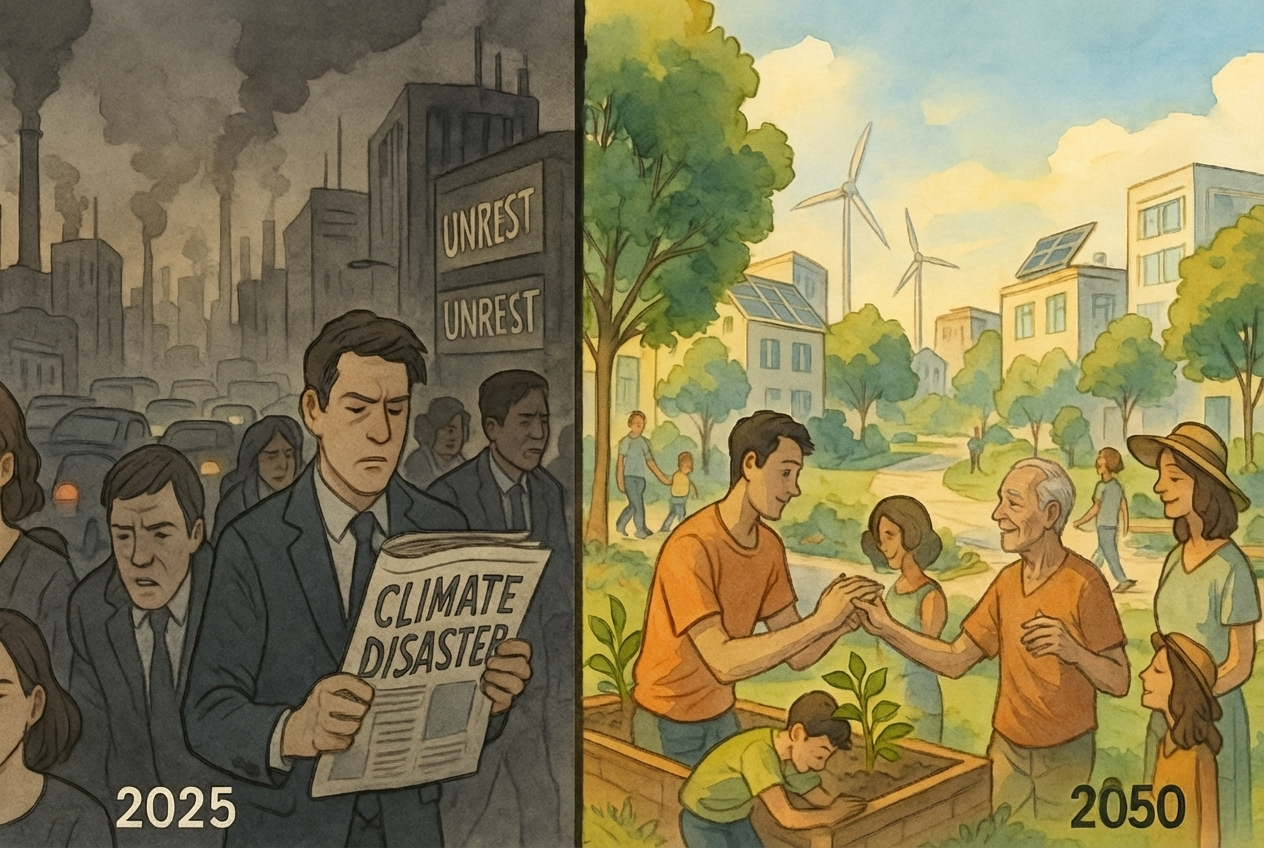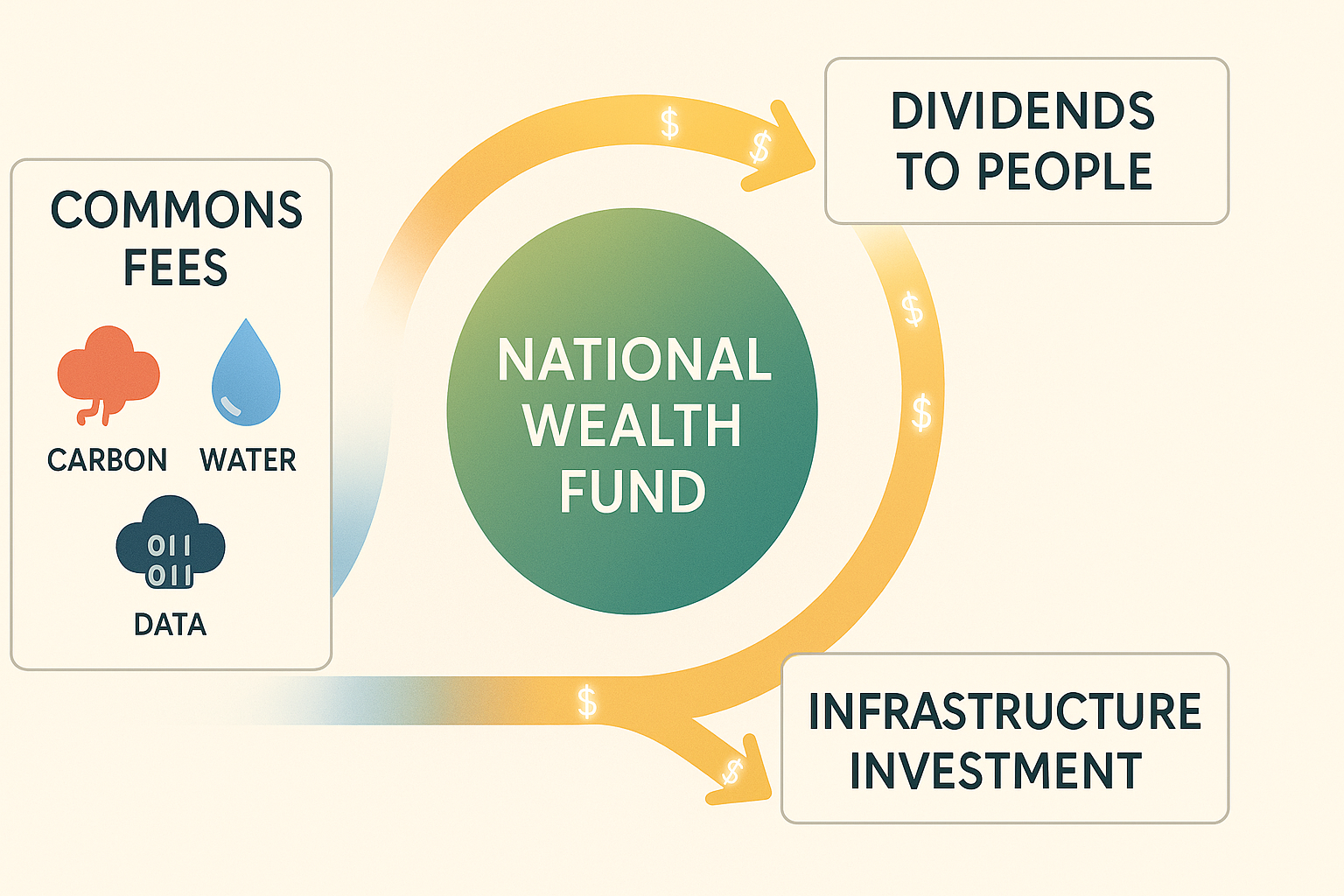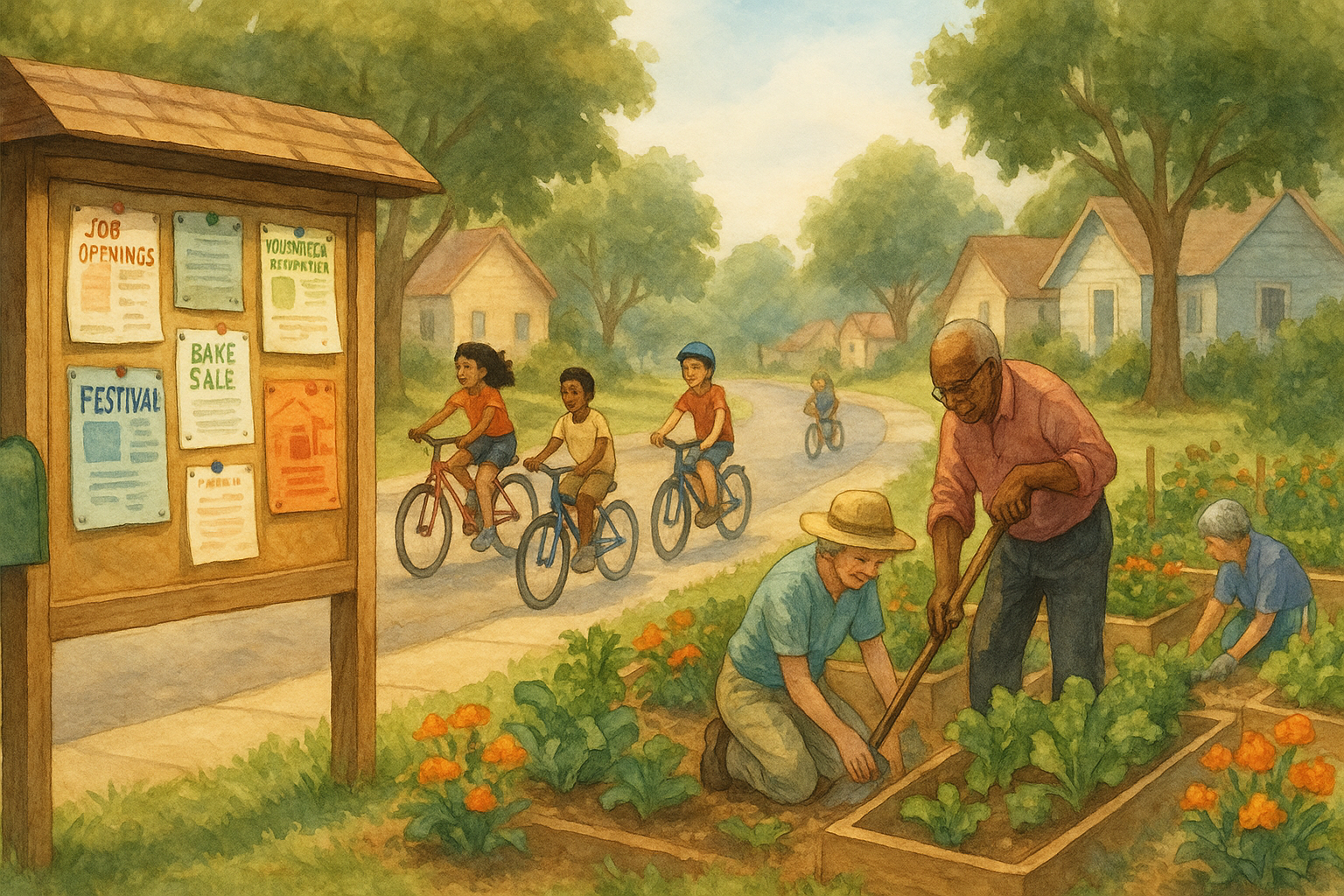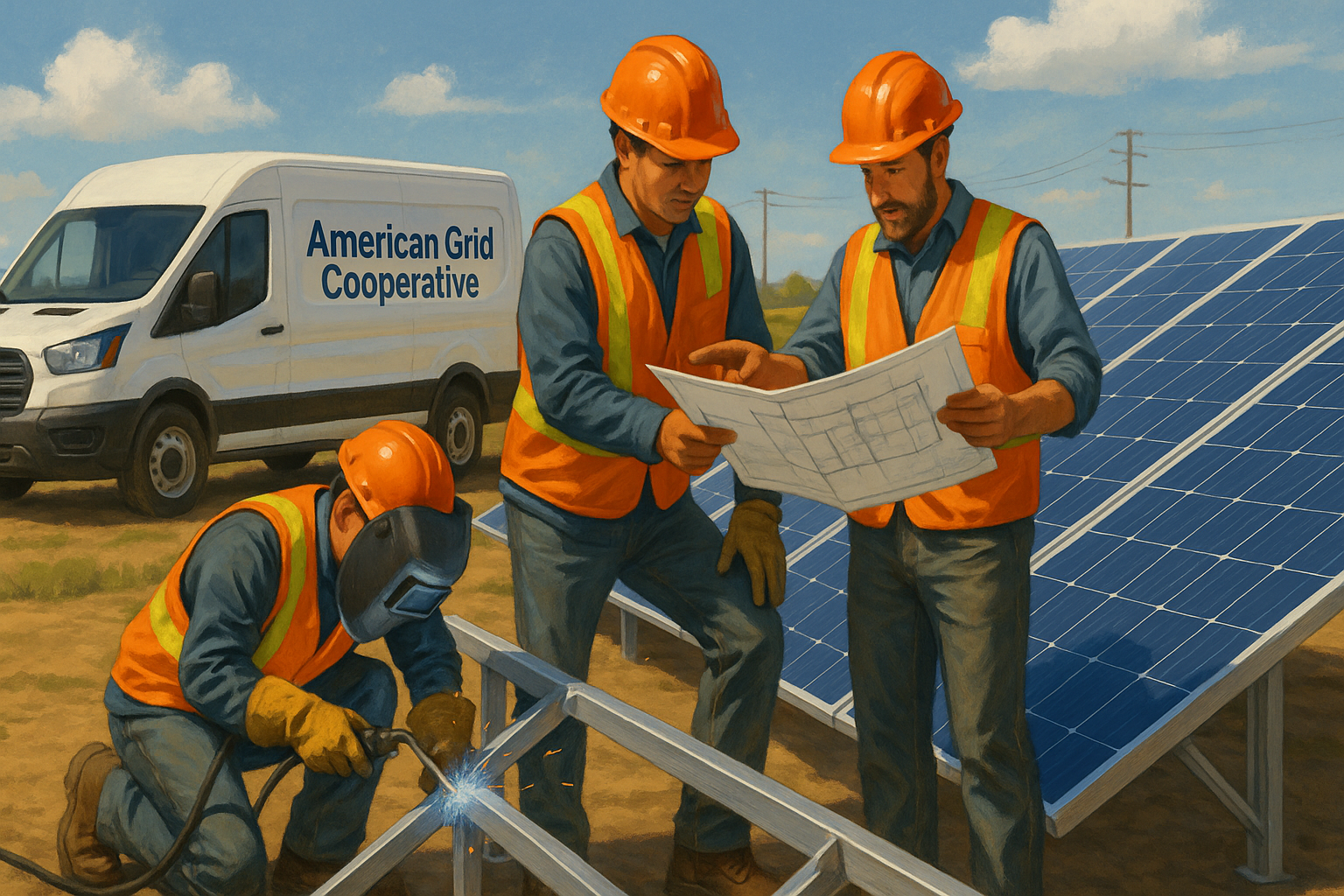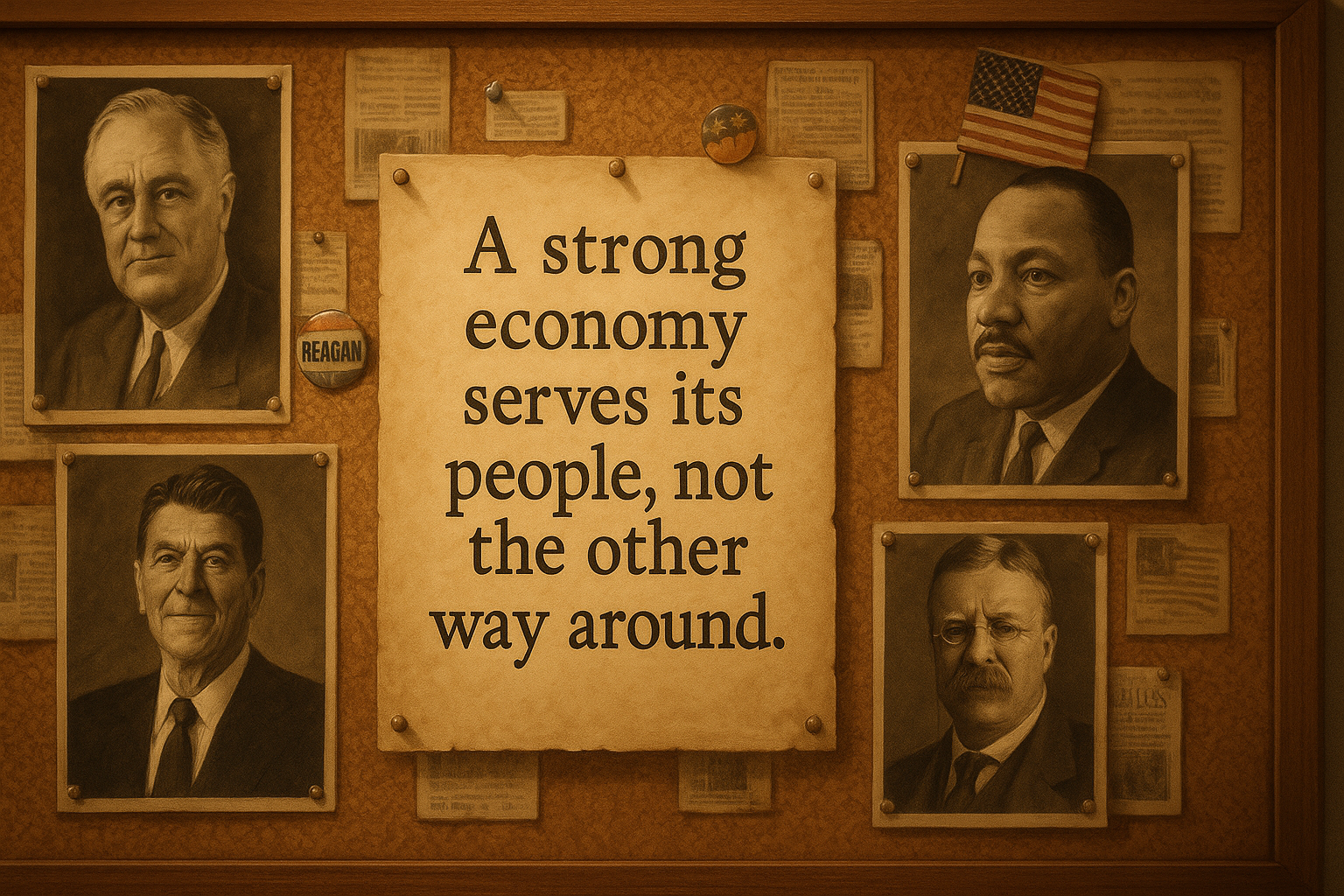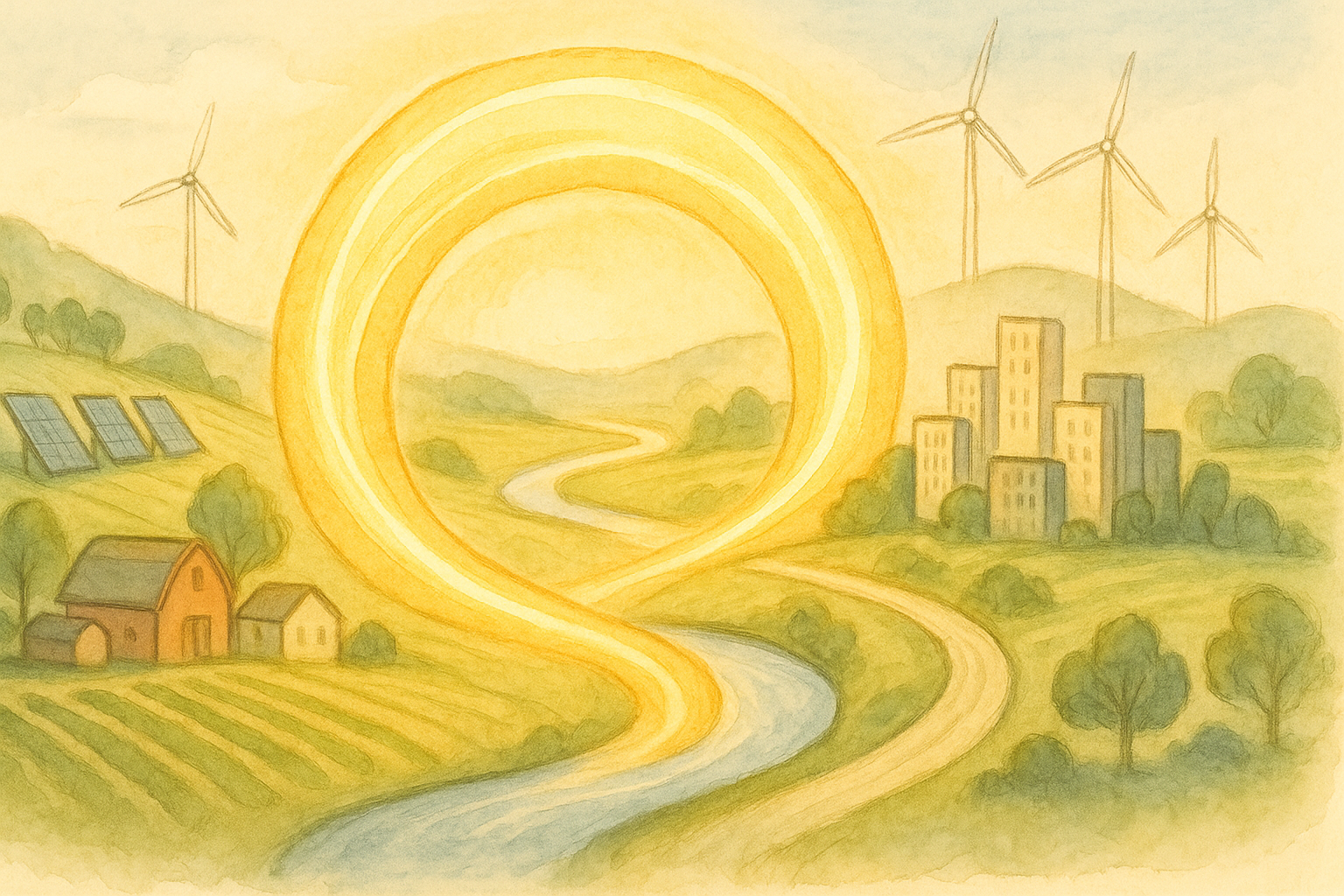
You live in the loop now
A story from the near future, where America chose circulation over collapse—and it’s paying off.
You wake early. The house is quiet, efficient. The sun powers your life now—your fridge, your truck, even your water heater.
Not fancy. Just functional. Yours.
You remember the old days. Chaos, division, burnout. Everything felt brittle.
Now, things flow differently. Not perfect, but steady.
You still work. Most people do. But now, there’s a floor beneath your feet.
That monthly dividend? It doesn’t make you rich. It makes you stable.
The extra cushion gave you space. To switch careers. To start something. To take a risk.
Same with your neighbors. They're building things, not just getting by.
If you use the commons—air, water, digital space—you pay a small fee.
That money flows back. Into roads. Into schools. Into your pocket.
Crime’s down. Evictions are rare. The panic that used to grip every conversation—it’s quieter now.
People stick around. They invest in where they live.
Clean tech isn’t hype anymore. It’s work. It’s local. It pays well. It’s American-made.
And it’s cheaper, thanks to 20 years of smart incentives and shared investment.
It wasn’t a revolution. It was a return to balance. Ownership, responsibility, reciprocity. Left and right, old and new.
You’re not rich. But you have time.
Time to rest. Time to create. Time to care. That’s wealth, too.
You’re part of something now. A loop, not a ladder.
Prosperity circulates. And you’re not waiting for collapse anymore.
You live in the loop now.
It’s not perfect.
But it’s working.
And it includes you.

